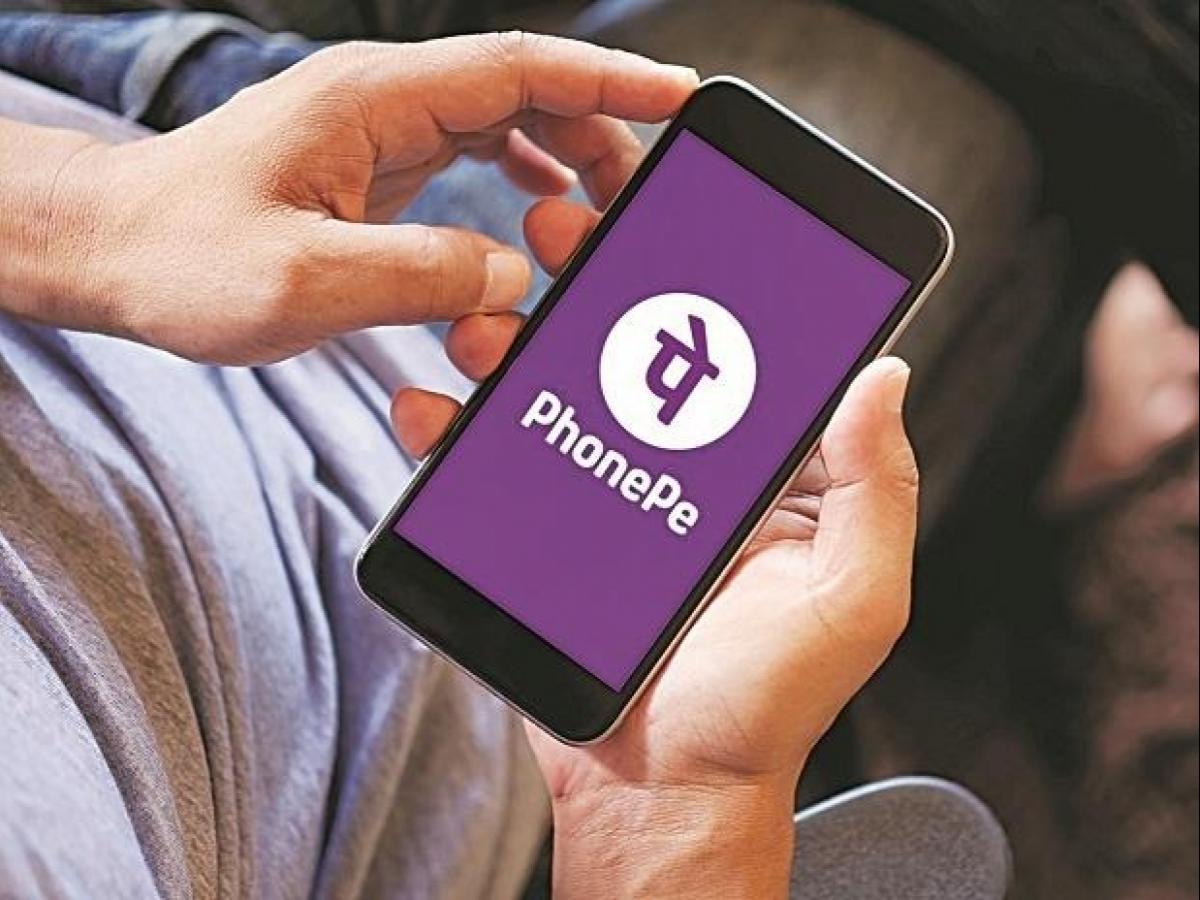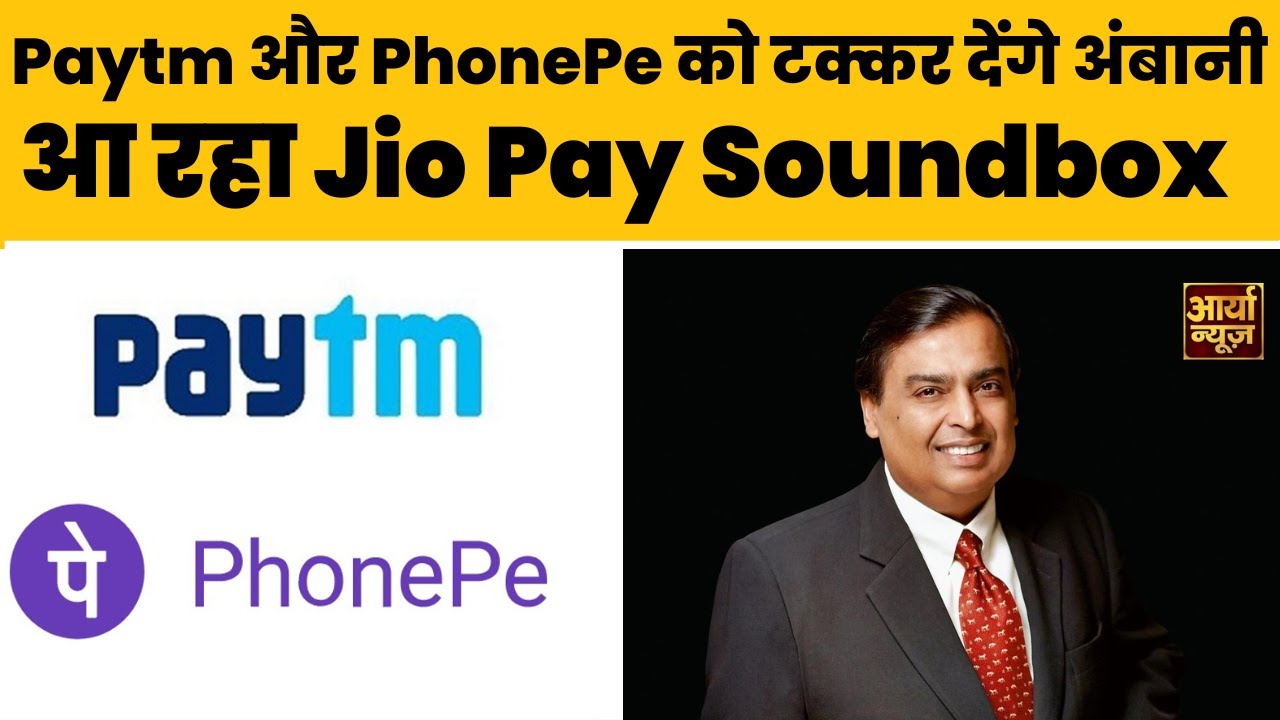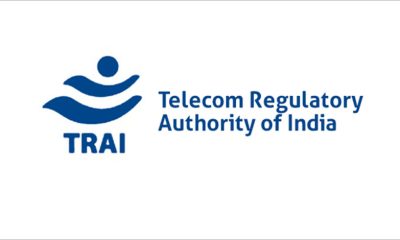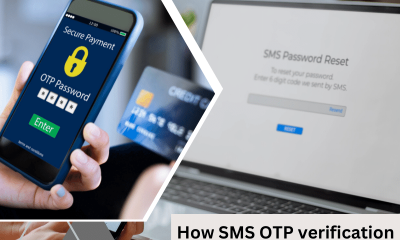Business
TRAI directive to exclude unregistered commercial SMS

The Telecom Regulatory Authority of India (Trai) has asked operators to fully implement the new SMS regulations from 1 April, directing them to block messages from companies and telemarketers that are yet to comply with the rules rolled out to check spam messages and protect customers from online frauds.
In a letter dated 25 March, the sector regulator directed telecom operators to inform companies and telemarketers to adopt the new SMS norms by 31 March to avoid any disruption in online transactions.
“As sufficient opportunity has been given to the principal entities to comply with the regulatory requirements, the consumers cannot be deprived of the benefits of the regulatory provisions. Accordingly, it has been decided that from 1 April any message failing in scrubbing due to non-compliance of regulatory requirements will be rejected,” Trai said in the letter.
The new SMS scrubbing norms, or the Telecom Commercial Communication Customer Preference Regulations (TCCCPR), were introduced in July 2018 to “effectively deal with the nuisance of spam”, and prohibit unregistered entities from sending commercial messages. Registered firms are also prevented from sending fraudulent messages to customers.
Last week, Trai resumed the new SMS scrubbing rules after their implementation on 8 March led to massive disruptions in online transactions including net banking, Aadhaar-enabled payments, railway ticket bookings, vaccine registration, among others.
Business
യുഎഇയിൽ ഇന്ത്യൻ പൗരന്മാർക്ക് ഫോൺ പേ ആപ്പ് ഉപയോഗിച്ച് പണമിടപാടുകൾ നടത്താം

ദുബായ് : യുഎഇയിൽ ഇന്ത്യൻ പൗരന്മാർക്ക് ഫോൺ പേ(PhonePe) ആപ്പ് ഉപയോഗിച്ച് പണമിടപാടുകൾ നടത്താം. രാജ്യത്ത് കമ്പനിയുടെ യൂണിഫൈഡ് പേയ്മെന്റ് ഇന്റർഫേസിന്റെ (യുപിഐ) വിപുലീകരണത്തോടെയാണ് ഇത് യാഥാർഥ്യമായത്. ദുബായ് ആസ്ഥാനമായുള്ള മഷ്റഖ് ബാങ്കുമായുള്ള ഫോൺപേയുടെ പങ്കാളിത്തത്തിലൂടെ ഈ സംരംഭം നടപ്പിലായി. റീട്ടെയിൽ സ്റ്റോറുകൾ, ഡൈനിങ് ഔട്ട്ലെറ്റുകൾ, വിനോദസഞ്ചാര കേന്ദ്രങ്ങൾ, വിനോദ കേന്ദ്രങ്ങൾ എന്നിവിടങ്ങളിൽ ലഭ്യമായ മഷ്റഖിന്റെ NEOPAY (നിയോപേ) ടെർമിനലുകളിൽ ഇടപാടുകൾ നടത്താം. ഫോൺപേ പ്രകാരം ടെർമിനലിൽ കറൻസി വിനിമയ നിരക്ക് കാണിക്കുന്ന ഇന്ത്യൻ രൂപയിൽ അക്കൗണ്ട് ഡെബിറ്റ് സംഭവിക്കും.
ഫോൺ പേ ആപ്പ് തുറന്ന് പ്രൊഫൈൽ ചിത്രത്തിൽ ടാപ്പ് ചെയ്യുക. തുടർന്ന് ‘പേയ്മെന്റ് ക്രമീകരണങ്ങൾ’ (“Payment Settings”) വിഭാഗത്തിന് കീഴിൽ ‘യുപിഐ ഇന്റർനാഷനൽ’ (“UPI International” ) തിരഞ്ഞെടുക്കുക. രാജ്യാന്തര യുപിഐ പേയ്മെന്റുകൾക്കായി ഉപയോഗിക്കാൻ ആഗ്രഹിക്കുന്ന ബാങ്ക് അക്കൗണ്ടിന് അടുത്തുള്ള ‘ആക്ടീവ്'(Activate) ടാപ്പ് ചെയ്ത്, സജീവമാക്കൽ പ്രക്രിയ പൂർത്തിയാക്കാൻ യുപിഐ പിൻ നൽകുക.
ഏതെങ്കിലും നിയോ പേ ടെർമിനലിൽ, പേയ്മെന്റിനായി ഫോൺ പേ ആപ്പിലെ ക്യു ആർ സ്കാൻ കോഡ് സ്കാൻ ചെയ്യുക. അക്കൗണ്ട് ഡെബിറ്റ് ഇന്ത്യൻ രൂപയിലായിരിക്കും. ഇന്ത്യൻ പ്രവാസികൾക്ക് ഫോൺ പേ ഉപയോഗിച്ച് പണമടയ്ക്കാം, ഇതിനായി യുഎഇയിലെ ഇന്ത്യൻ പ്രവാസികൾ അവരുടെ മൊബൈൽ നമ്പറിൽ ഫോൺ പേ ആപ്പ് ഡൗൺലോഡ് ചെയ്യണം.
Sources:globalindiannews
Business
ജിയോ സൗണ്ട് ബോക്സുമായി അംബാനി; പേടിഎമ്മിനും ഗൂഗിൾ പേക്കും ഫോൺ പേക്കും മുട്ടൻ പണി

വഴിയോരക്കച്ചവടം മുതൽ ഹൈപ്പർമാർക്കറ്റുകളിൽ വരെ ഇപ്പോൾ പണം സ്വീകരിക്കാനായി യു.പി.ഐ സൗകര്യമുണ്ട്. പേയ്മെന്റ് വെരിഫിക്കേഷനായി പേടിഎം, ഫോൺപേ പോലുള്ള കമ്പനികളുടെ ക്യൂ.ആർ കോഡ് സൗണ്ട് ബോക്സുകളാണ് കടയുടമകൾ സ്ഥാപിച്ചിരിക്കുന്നത്. എന്നാൽ, ഇരു കമ്പനികൾക്കും മുട്ടൻ പണിയുമായി എത്താൻ പോവുകയാണ് റിലയൻസ് ജിയോ. യു.പി.ഐ പേയ്മെൻ്റ് വിപണിയിലേക്കാണ് മുകേഷ് അംബാനിയുടെ ടെലികോം ഭീമൻ അടുത്തതായി ചുവടുവെക്കാനൊരുങ്ങുന്നത്.
പേടിഎം സൗണ്ട്ബോക്സിന് സമാനമായി, റീട്ടെയിൽ ഔട്ട്ലെറ്റുകളിലെ പേയ്മെൻ്റുകളിൽ വിപ്ലവം സൃഷ്ടിക്കാനായി ജിയോ സൗണ്ട്ബോക്സ് (Jio soundbox) അവതരിപ്പിക്കാനാണ് കമ്പനി തയ്യാറെടുത്തിരിക്കുന്നത്. ഗൂഗിൾ പേ, ഫോൺ പേ പോലെ ‘ജിയോ പേ’ സേവനവും ഇതിനോടൊപ്പം വിപുലീകരിക്കാനാണ് റിലയൻസ് ലക്ഷ്യമിടുന്നത്.
ജിയോ സൗണ്ട് ബോക്സിൽ കുറേ നാളായി പരീക്ഷണം നടത്തിവരികയായിരുന്നു റിലയൻസ്. റിലയൻസ് റീട്ടെയിൽ സ്റ്റോറുകളിൽ കഴിഞ്ഞ ഒമ്പത് മാസത്തോളമായി സൗണ്ട്ബോക്സ് പരീക്ഷണ അടിസ്ഥാനത്തിൽ വിന്യസിച്ചിരുന്നു. ജയ്പൂർ, ഇൻഡോർ, ലഖ്നൗ തുടങ്ങിയ ചെറിയ മെട്രോകളിലും റിലയൻസ് ഗ്രൂപ്പിൻ്റെ റീട്ടെയിൽ സ്ഥാപനങ്ങളിലുമൊക്കെയാണ് ഉപകരണം പരീക്ഷിച്ചത്. വൈകാതെ രാജ്യത്തുടനീളം സേവനം അവതരിപ്പിക്കാനാണ് റിലയൻസ് ലക്ഷ്യമിടുന്നത്.
രാജ്യത്ത് രണ്ട് ദശലക്ഷത്തിലേറെ വ്യാപാരികളാണ് സൗണ്ട് ബോക്സുകൾ അവരുടെ സ്ഥാപനങ്ങളിൽ വിന്യസിച്ചിട്ടുള്ളത്. അതിൽ കൂടുതലും പേടിഎമ്മിന്റേതാണ്. ഫോൺ പേയാണ് രണ്ടാമത്. ഇന്ത്യയിൽ ഫോൺപേക്കും ഗൂഗിൾ പേക്കും കർശന നിയന്ത്രണം ഏർപ്പെടുത്താൻ കേന്ദ്ര സർക്കാർ ഒരുങ്ങുന്നതായുള്ള റിപ്പോർട്ടുകളുണ്ട്. പേടിഎം പേയ്മെന്റ്സ് ബാങ്കിന്റെ തകർച്ച പേടിഎമ്മിനും വലിയ തിരിച്ചടി സമ്മാനിച്ചിരിക്കുകയാണ്. ഇത് ജിയോ പേയ്ക്ക് ഗുണം ചെയ്യുമെന്നാണ് വിലയിരുത്തപ്പെടുന്നത്.
Sources:azchavattomonline.com
Business
പൊതുജനങ്ങളുടെ ശ്രദ്ധക്ക്, ബാങ്കുകളുടെ പ്രവൃത്തി ദിനത്തിൽ നിർണായക മാറ്റം, ഇനിമുതൽ എല്ലാ ശനിയാഴ്ചയും അവധി

ദില്ലി:രാജ്യത്തെ ബാങ്കുകളുടെ പ്രവൃത്തി ദിനങ്ങളിൽ മാറ്റം വരുന്നു. ബാങ്കുകൾക്ക് എല്ലാ ശനിയാഴ്ചയും അവധി നൽകാനുള്ള ശിപാർശക്ക് കേന്ദ്ര സർക്കാരും റിസർവ് ബാങ്കും അംഗീകാരം നൽകാനും തീരുമാനമായി.
ഇതുസംബന്ധിച്ച് ഇന്ത്യൻ ബാങ്ക്സ് അസോസിയേഷനും ജീവനക്കാരുടെ സംഘടനകളും കരാറിൽ ഒപ്പിട്ടു. അംഗീകാരം ലഭിക്കുന്നതോടെ പ്രാബല്യത്തിൽ വരും. നിലവിൽ രണ്ടാം ശനിയും നാലാം ശനിയുമാണ് ബാങ്കുകൾക്ക് അവധി. ശിപാർശ നടപ്പാകുന്നതോടെ പ്രവർത്തി ദിവസം തിങ്കൾ മുതൽ വെള്ളി വരെയാകും.
പ്രവർത്തി ദിവസം കുറക്കുന്നതോടെ പ്രവർത്തി സമയം വർധിപ്പിക്കും. 45 മിനിറ്റാണ് ദിവസം അധികം ജോലിയെടുക്കേണ്ടത്. ബാങ്ക് ജീവനക്കാരുടെ ശമ്പളം 17 ശതമാനം കൂട്ടാനും തീരുമായിട്ടുണ്ട്. 2022 നവംബർ 1 മുതൽ പ്രാബല്യത്തോടെ 5 വർഷത്തേക്കാണ് ശമ്പള വർധന.
വർധന നടപ്പാകുന്നതോടെ ക്ലറിക്കൽ ജീവനക്കാരുടെ അടിസ്ഥാന ശമ്ബളം 17,900 ആയിരുന്നത് 24,050 രൂപയാകും. പ്യൂൺ, ബിൽ കലക്ടർ തുടങ്ങിയ സബോർഡിനേറ്റ് ജീവനക്കാരുടെ തുടക്കത്തിലെ അടിസ്ഥാനശമ്ബളം 14,500 രൂപയിൽനിന്ന് 19,500 രൂപയാക്കും.
Sources:NEWS AT TIME
-

 us news10 months ago
us news10 months agoനോർത്ത് അമേരിക്കൻ പെന്തക്കോസ്തൽ റൈറ്റേഴ്സ് ഫോറം : രാജൻ ആര്യപ്പള്ളി പ്രസിഡന്റ്; നിബു വെള്ളവന്താനം സെക്രട്ടറി
-

 us news8 months ago
us news8 months agoനോര്ത്ത് അമേരിക്കന് പെന്തക്കോസ്തല് റൈറ്റേഴ്സ് ഫോറം; അറ്റ്ലാന്റാ ചാപ്റ്ററിന് പുതിയ ഭാരവാഹികള്
-

 us news11 months ago
us news11 months ago‘The Biggest Water Baptism in History’: 4,166 Baptized at Historic Beach from Jesus Movement
-

 world news11 months ago
world news11 months agoMuslim Husband Found Out His Wife Became a Christian; He Beat Her, Starved Her and Left Her in a Wild Animal Park—But God…
-

 National7 months ago
National7 months agoബൈബിൾ വിതരണം ചെയ്യുന്നതും നല്ല മൂല്യങ്ങൾ പഠിപ്പിക്കുന്നതും മതപരിവർത്തനമല്ല: അലഹബാദ് ഹൈക്കോടതിയുടെ നിര്ണ്ണായക വിധി
-

 world news9 months ago
world news9 months ago37 Christians Killed in Nigeria in Three Weeks
-

 world news11 months ago
world news11 months agoലേലത്തിൽ വെച്ചിരുന്ന ലോകത്തിലെ ഏറ്റവും പഴക്കമുള്ള ഹീബ്രു ബൈബിളിന് റെക്കോര്ഡ് തുക: ലഭിച്ചത് 314 കോടിരൂപ
-

 world news11 months ago
world news11 months agoയുഎഇ യിൽ ക്രൈസ്തവ ആരാധനാലയങ്ങൾക്ക് ഇനി ലൈസൻസ് നിർബന്ധം

























